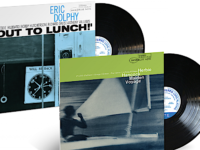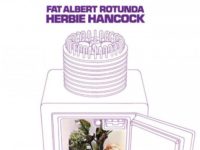Herbie Hancock almost didn’t pull off “The New Standard.”
This High Concept offering from 1996 found Hancock, with varying degrees of success, adapting songs by popular artists like Peter Gabriel, The Eagles’ Don Henley, Paul Simon, The Beatles and Prince.
You had to give him credit — again — for sticking his thumb in the eye of jazz classicism. Even still, no one is going to confuse Sade (whatever her modern charms) with Gershwin.
The worst prospect of all, it seemed upon the record’s release, was Hancock’s desire to take on Kurt Cobain’s “All Apologies,” a weary, pissed-off post-modern tune that made Rolling Stone magazine’s list of the Top 500 greatest pop songs of all time.
Instead, it’s this Hancock recording’s signature effort.
 I found “No Apologies” again when it was reissued in September on the first-ever Hancock career retrospective (“Then and Now” on Verve). The cut strips down a backing group that includes Michael Brecker on tenor and soprano sax, bassist Dave Holland, drummer Jack DeJohnette and percussionist Don Alias. We find Hancock (sticking, as he does throughout, on acoustic piano) in a quieter moment alongside guitarist John Scofield — who switches to electric sitar for a duet.
I found “No Apologies” again when it was reissued in September on the first-ever Hancock career retrospective (“Then and Now” on Verve). The cut strips down a backing group that includes Michael Brecker on tenor and soprano sax, bassist Dave Holland, drummer Jack DeJohnette and percussionist Don Alias. We find Hancock (sticking, as he does throughout, on acoustic piano) in a quieter moment alongside guitarist John Scofield — who switches to electric sitar for a duet.
Nowhere is Hancock’s ability to reformulate popular melodies into the jazz framework more skillfully explored. He weaves in emotionally involving, just-right atmospheric vamps, gooses the chord structures, and responds in kind to each new provocative bent Scofield takes. The Nirvana tune’s central theme of resigned disconnect resonates completely once more.
As for “Then and Now,” the 12-song greatest hits project that brought me back to “All Apologies,” it’s brevity makes for a jarring journey. There is just too much artistry, too many twists and thrilling turns between 1964 (the earliest cut here is that stuttering groover “Cantaloupe Island,” from “Empyrean Isles” on Blue Note) through to Hancock’s triumphal return in 2007 (the title cut from his Grammy Album of the Year award-winning release “River: The Joni Letters” on Verve, featuring the superlative Corinne Bailey Rae) to be contained in a solitary CD.
Hancock dabbled, over this five decade-long period, in a dizzying array of styles, including but not limited to electro-funk, R&B, hard bop, post bop, fusion, pop, hip hop, acid, retro and contemporary jazz.
Squeezed into this tight space, we find Hancock’s entire electric period summed up in just two Headhunters’ cuts, a jarring edit of “Chameleon” and this wildly successful reimaging of “Watermelon Man,” both from 1973. Such a rich, artistic phase deserves its own disc, as does Hancock’s explosive output of original material in the early 1960s, work that initially caught the eye of one Miles Davis.
No “V.S.O.P.?” What about Hancock’s late-1970s trio recording with Davis bandmates Tony Williams and Ron Carter, or his 1997 duet recording with Wayne Shorter? His well-regarded 1980s funk and soundtrack work? The 1994 acid-jazz experiment “Dis Is Da Drum”? That tremendous “Quintet” recording with Wynton Marsalis in 1982?
Unfortunately, this is the nature of a one-CD song cycle featuring such a complex artist. So much is missing, and even what’s there on “Then and Now” can’t find a natural rhythm — since it moves through so many permutations so quickly.
That said, completists will be tempted by a previously unreleased live version of Hancock’s MTV favorite “Rockit” as well as a new concert recording of “River” featuring Joni Mitchell herself. And “Then and Now” is certainly to be recommended for helping me rediscover this almost-forgotten old Nirvana redo, a daring, eloquent highlight from a recording I’d long since filed away.
For that, no apologies needed.
- Nick DeRiso’s Best of 2015 (Rock + Pop): Death Cab for Cutie, Joe Jackson, Toto + Others - January 18, 2016
- Nick DeRiso’s Best of 2015 (Blues, Jazz + R&B): Boz Scaggs, Gavin Harrison, Alabama Shakes - January 10, 2016
- Nick DeRiso’s Best of 2015 (Reissues + Live): John Oates, Led Zeppelin, Yes, Faces + others - January 7, 2016





